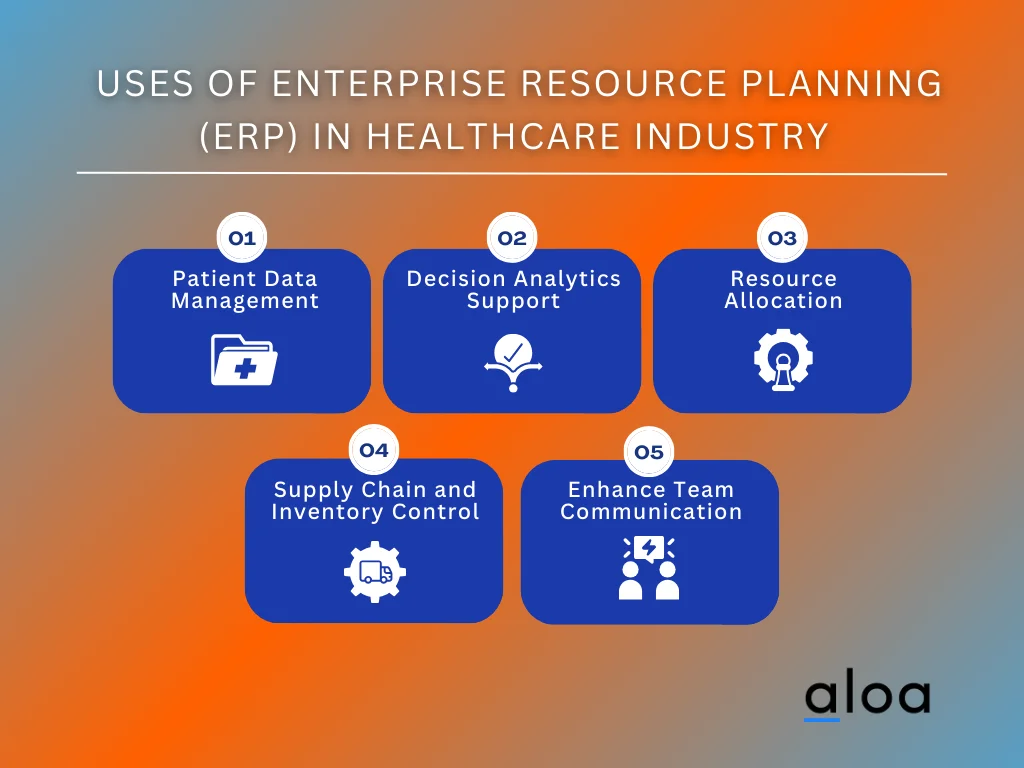In the ever-evolving healthcare sector, efficiency and accuracy are paramount. Hospitals, clinics, and other healthcare providers are constantly seeking ways to improve operations, manage patient data effectively, and optimize resource allocation. One solution that has increasingly gained traction in the healthcare industry is Enterprise Resource Planning (ERP) software. Here’s how ERP can revolutionize healthcare management, enhance patient care, and streamline operational processes.
What is ERP in Healthcare?
Enterprise Resource Planning (ERP) software integrates various business processes into a unified system. In healthcare, ERP systems bring together administrative functions, financial operations, human resources, supply chain management, and patient data management into a single platform. This integration helps streamline workflows, improve data accuracy, and ensure compliance with industry regulations.
Benefits of ERP in Healthcare
- Enhanced Patient Data Management
ERP systems provide a comprehensive view of patient information by integrating electronic health records (EHR) with other administrative data. This ensures that patient data is accurate, up-to-date, and accessible in real-time. Healthcare professionals can quickly retrieve patient histories, track treatment progress, and make informed decisions based on comprehensive data. - Improved Resource Allocation
Efficient management of resources such as medical equipment, staff, and inventory is crucial in healthcare. ERP systems help optimize resource allocation by providing real-time insights into resource utilization, inventory levels, and staff schedules. This leads to better planning, reduced waste, and cost savings. - Streamlined Financial Management
ERP systems automate financial processes such as billing, invoicing, and claims processing. This reduces manual errors, accelerates revenue cycle management, and enhances financial transparency. Accurate financial reporting and analytics also help healthcare organizations make data-driven decisions and manage budgets effectively. - Optimized Supply Chain Management
Managing medical supplies and pharmaceuticals can be complex due to varying demand and inventory levels. ERP systems offer advanced supply chain management capabilities, including inventory tracking, order management, and supplier coordination. This ensures that healthcare providers have the necessary supplies on hand while minimizing excess inventory. - Enhanced Compliance and Reporting
Healthcare organizations must adhere to strict regulations and standards. ERP systems facilitate compliance by automating reporting processes and ensuring that all data is accurately recorded and accessible for audits. This helps healthcare providers maintain regulatory compliance and avoid potential penalties. - Improved Patient Experience
By integrating patient data and streamlining administrative processes, ERP systems contribute to a better overall patient experience. Faster appointment scheduling, accurate billing, and efficient communication between healthcare providers enhance patient satisfaction and build trust. - Data-Driven Decision Making
ERP systems provide valuable insights through data analytics and reporting tools. Healthcare organizations can analyze trends, track performance metrics, and identify areas for improvement. This data-driven approach supports strategic decision-making and drives continuous improvement.
Challenges and Considerations
While ERP systems offer numerous benefits, implementing them in a healthcare setting can pose challenges:
- Customization and Integration: Tailoring ERP systems to meet the specific needs of a healthcare organization and integrating them with existing systems can be complex and time-consuming.
- Cost: The initial investment in ERP software and the associated implementation costs can be significant. However, the long-term benefits often outweigh these costs.
- Training and Change Management: Ensuring that staff are adequately trained and managing the transition to a new system are critical for successful ERP implementation.
Conclusion
ERP systems are transforming the way healthcare organizations manage patient data and resources. By providing an integrated platform for various administrative and operational functions, ERP software enhances efficiency, accuracy, and overall patient care. While there are challenges associated with implementation, the long-term benefits of ERP in healthcare make it a valuable investment for improving operational effectiveness and achieving better patient outcomes.
